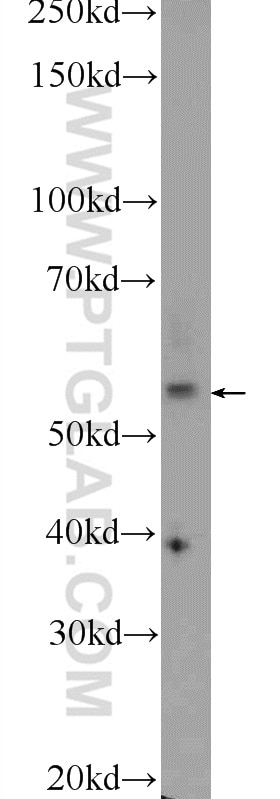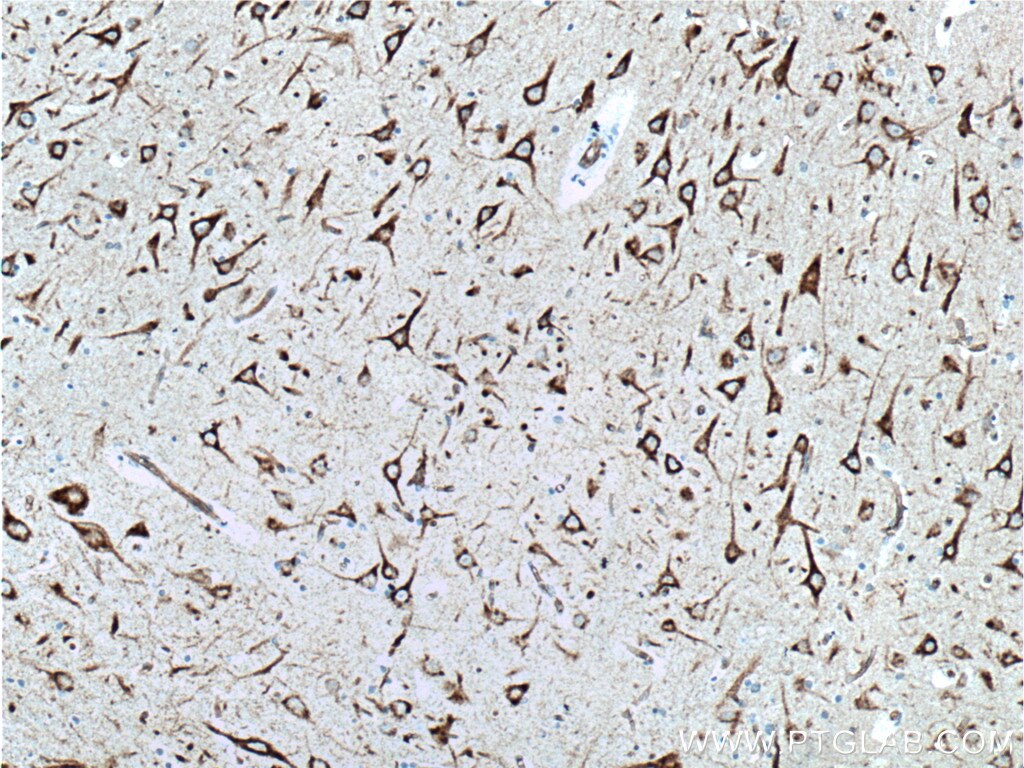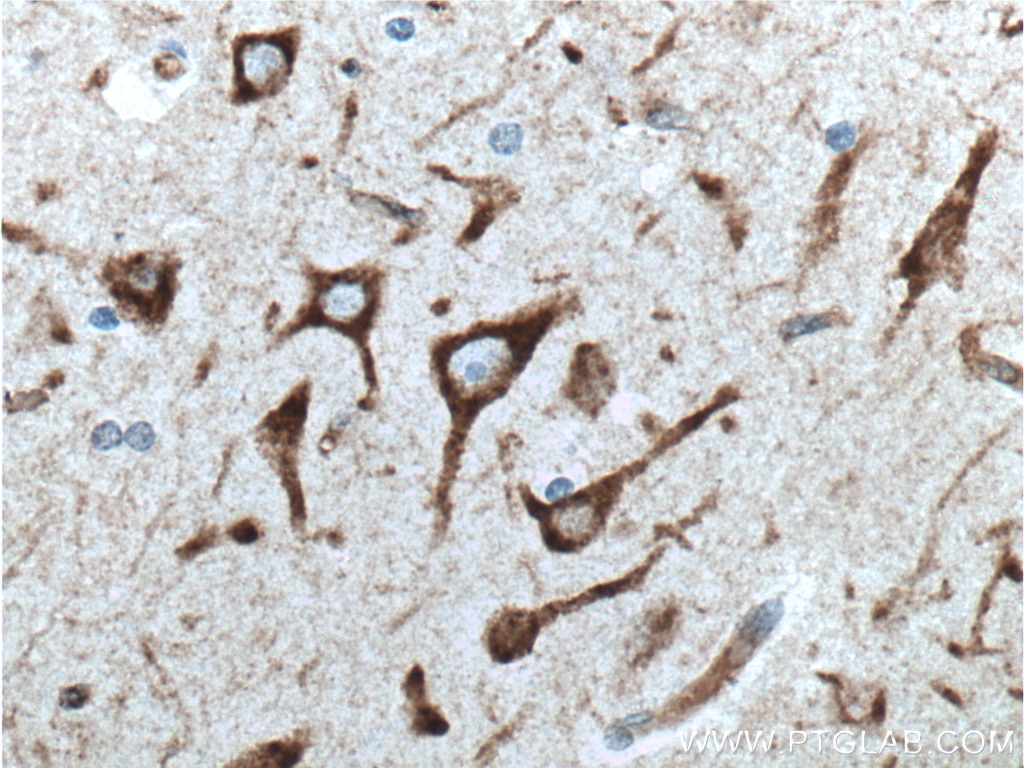Tested Applications
| Positive WB detected in | human plasma tissue |
| Positive IHC detected in | human brain tissue Note: suggested antigen retrieval with TE buffer pH 9.0; (*) Alternatively, antigen retrieval may be performed with citrate buffer pH 6.0 |
Recommended dilution
| Application | Dilution |
|---|---|
| Western Blot (WB) | WB : 1:500-1:1000 |
| Immunohistochemistry (IHC) | IHC : 1:50-1:500 |
| It is recommended that this reagent should be titrated in each testing system to obtain optimal results. | |
| Sample-dependent, Check data in validation data gallery. | |
Product Information
24065-1-AP targets NHEDC2 in WB, IHC, ELISA applications and shows reactivity with human samples.
| Tested Reactivity | human |
| Host / Isotype | Rabbit / IgG |
| Class | Polyclonal |
| Type | Antibody |
| Immunogen |
CatNo: Ag21141 Product name: Recombinant human NHEDC2 protein Source: e coli.-derived, PET30a Tag: 6*His Domain: 1-156 aa of BC047447 Sequence: MGDEDKRITYEDSEPSTGMNYTPSMHQEAQEETVMKLKGIDANEPTEGSILLKSSEKKLQETPTEANHVQRLRQMLACPPHGLLDRVITNVTIIVLLWAVVWSITGSECLPGGNLFGIIILFYCAIIGGKLLGLIKLPTLPPLPSLLGMLLAGFLI Predict reactive species |
| Full Name | Na+/H+ exchanger domain containing 2 |
| Calculated Molecular Weight | 537 aa, 58 kDa |
| Observed Molecular Weight | ~55 kDa |
| GenBank Accession Number | BC047447 |
| Gene Symbol | NHEDC2 |
| Gene ID (NCBI) | 133308 |
| RRID | AB_2879423 |
| Conjugate | Unconjugated |
| Form | Liquid |
| Purification Method | Antigen Affinity purified |
| UNIPROT ID | Q86UD5 |
| Storage Buffer | PBS with 0.02% sodium azide and 50% glycerol, pH 7.3. |
| Storage Conditions | Store at -20°C. Stable for one year after shipment. Aliquoting is unnecessary for -20oC storage. 20ul sizes contain 0.1% BSA. |
Background Information
NHEDC2, also named as NHA2 and SLC9B2, contributes to the organellar volume homeostasis. It is required for osteoclast differentiation and bone resorption activity. NHEDC2 has two isoforms with MW 48 kDa and 58 kDa.
Protocols
| Product Specific Protocols | |
|---|---|
| IHC protocol for NHEDC2 antibody 24065-1-AP | Download protocol |
| WB protocol for NHEDC2 antibody 24065-1-AP | Download protocol |
| Standard Protocols | |
|---|---|
| Click here to view our Standard Protocols |








